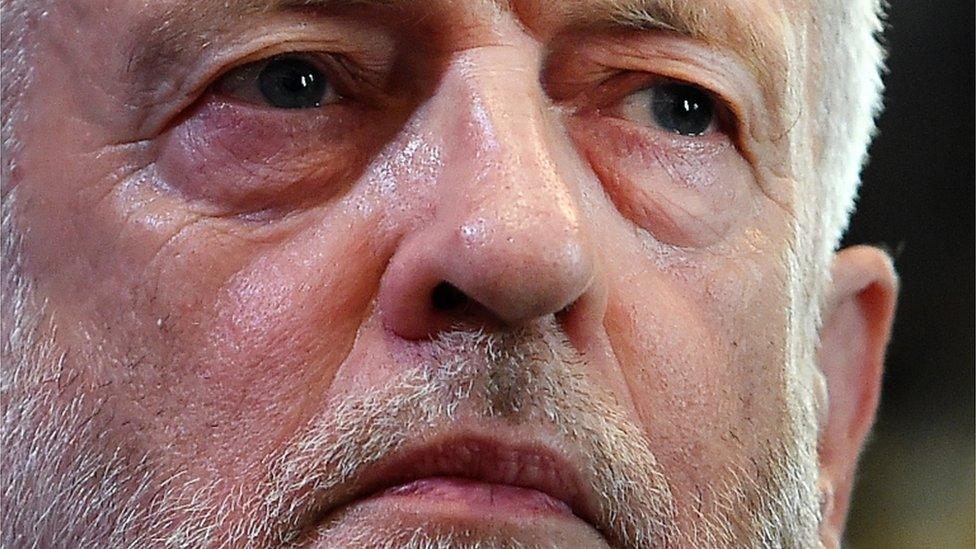Corbyn marks out clear dividing lines on defence
- Published

In his speech, Jeremy Corbyn channelled a previous Labour leader. He said he would be strong on terrorism, strong on the causes of terrorism.
But the substance of his message was miles away from Tony Blair's approach to foreign policy.
There is a pretty obvious reason why Jeremy Corbyn drew a link between intervention in foreign wars and acts of terrorism here. He believes it.
He has said similar things during his two Labour leadership contests - except this time he points out that this view is shared more widely by "experts".
But there are political considerations too.
Those who flooded in to Labour in 2015 - from the Greens, the Stop the War coalition or who simply got involved in politics for the first time - to support his leadership will be delighted to hear him set out a direction that is distinctive, not just from the Conservatives, but from recent Labour leaders.
They may be encouraged to step up their campaigning as a result.
But the party is divided between recent and long-standing members.
Had the franchise for the last Labour leadership contest been limited to the membership of 2015, Owen Smith would have replaced Jeremy Corbyn.
Fighting local campaigns
Publicly - and more often privately - many of Jeremy Corbyn's MPs are dismayed he willingly strayed in to foreign policy today.
Some of them are fighting relentlessly local campaigns - not mentioning their leader on their literature - and opposing spending cuts in their area.
So they wanted him to focus on cuts on police numbers.
They worry that, despite his protestations, arguing about the underlying causes of terrorism at this stage in a political campaign will allow opponents to claim he is somehow looking for excuses for it.
Some of them have told me privately that their campaigns have been going better as a result of their leader's recent lower profile.
But Jeremy Corbyn will have noted that around a million young people have applied for a vote since the election was called, and he thinks this is an untapped reservoir of support which is more likely to flow to Labour if the party appears to be radical.
More widely, though, voters of whatever political persuasion will have a clearer idea tonight on when and whether Jeremy Corbyn would sanction military action.
This founder of the Stop the War coalition set out clear conditions - from proper resourcing to the contribution to lasting peace - before sending our armed forces overseas.
On the day when the political truce ended, dividing lines between the main parties on defence - the first role of the state - became apparent.